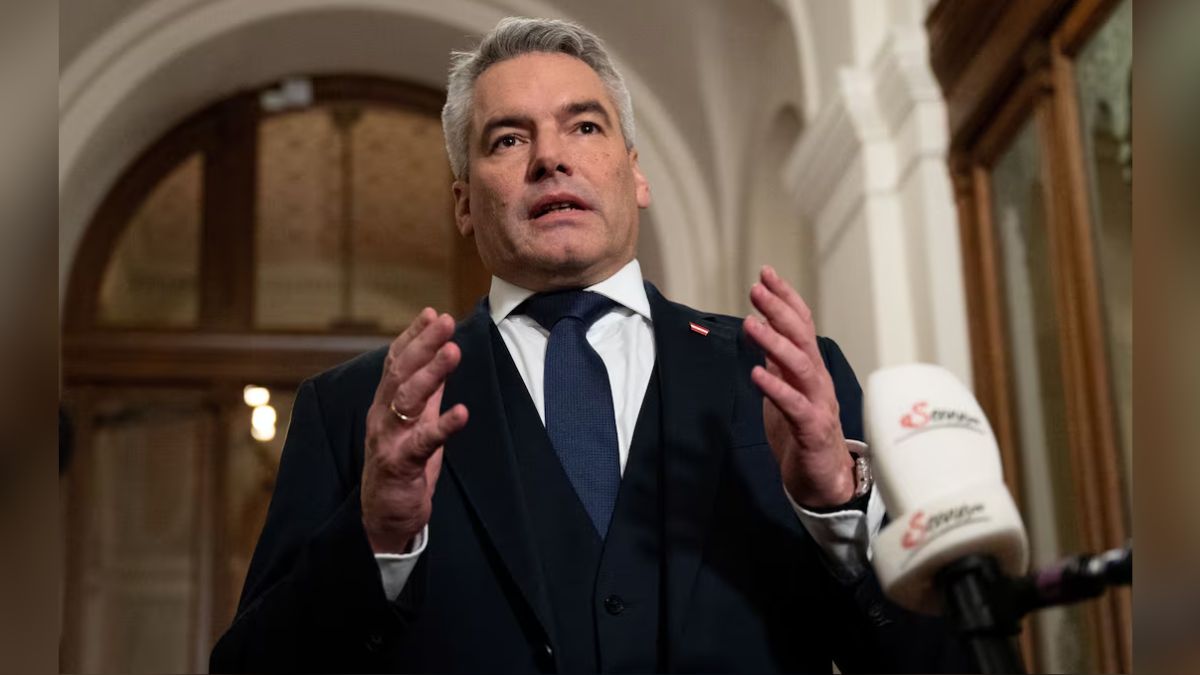Austrian Chancellor Karl Nehammer announced Saturday (January 4) that he will step down in the “coming days” after coalition talks with the Social Democrats collapsed over disagreements on key issues.
The surprise decision could lead to snap elections or prompt the conservative People’s Party (OVP) to explore a coalition with the far-right Freedom Party (FPO), which won national elections in September but has been unable to form a government.
Nehammer, who also leads the OVP, made the announcement in a video message and statement on the social media platform X.
“After the break-off of the coalition talks I am going to do the following: I will step down both as chancellor and party chairman of the People’s Party in the coming days and enable an orderly transition,” Nehammer said.
Coalition talks collapse
The development follows the withdrawal of Austria’s liberal party, NEOS, from three-party coalition negotiations to form a centrist government to exclude the far-right FPO, which garnered 28.8 per cent of the vote in September’s election.
The OVP came in second with 26.3 per cent, followed by the Social Democrats (SPO) with 21.1 per cent. Nehammer had been working to form a coalition with the SPO and NEOS, but those talks collapsed Friday (January 3).
Nehammer said discussions with the SPO fell apart due to irreconcilable differences on key issues.
Nehammer said he “always stood for stability,” adding, “it is my deep conviction that radicals do not offer a solution to a single problem, but only live by describing problems.”
Impact Shorts
More ShortsPresident Alexander Van der Bellen had urged the OVP and SPO to form a government “without delay” and initially tasked the conservatives with creating a stable administration that upholds Austria’s liberal democratic values. Van der Bellen has expressed reservations about FPO leader Herbert Kickl, known for his far-right rhetoric.
Next steps unclear
Nehammer’s resignation raises uncertainty about Austria’s political future. While he has ruled out working with Kickl, he has left the door open to negotiations with the FPO.
The FPO’s 28.8 per cent victory marked the highest vote share for the party, but it has struggled to find coalition partners. The OVP has governed Austria since 1987, including twice in coalition with the FPO, in 2000 and 2017.
A three-party coalition with the OVP, SPO, and NEOS would have been Austria’s first since 1949. The talks aimed to address pressing challenges, including a sluggish economy and rising budget deficits.
With inputs from agencies


)

)
)
)
)
)
)
)
)



